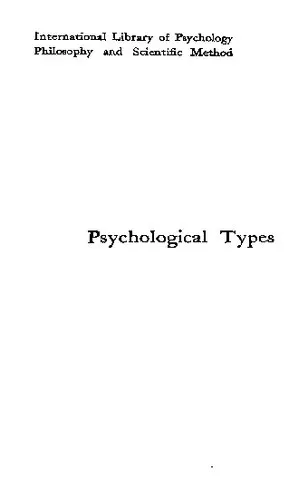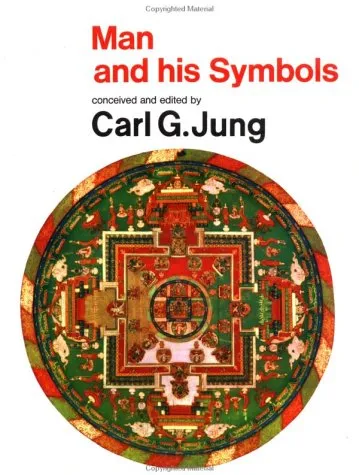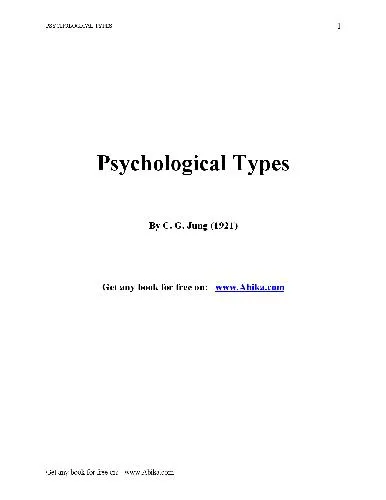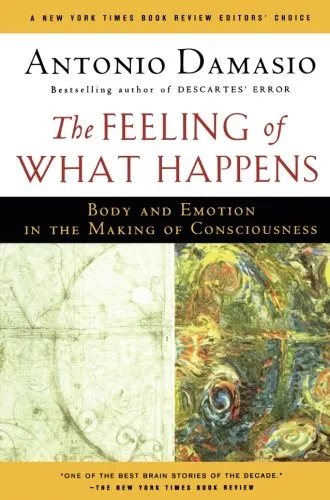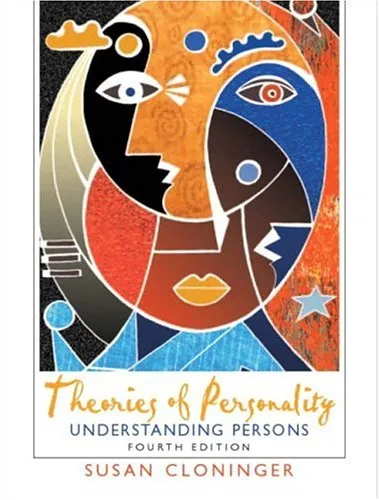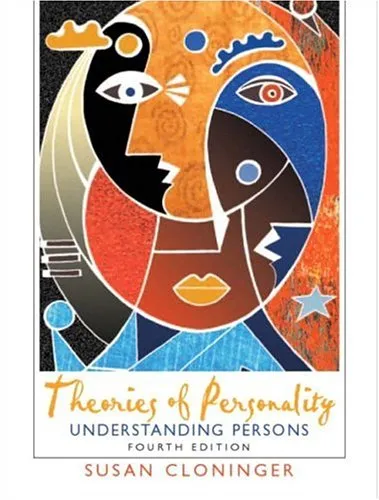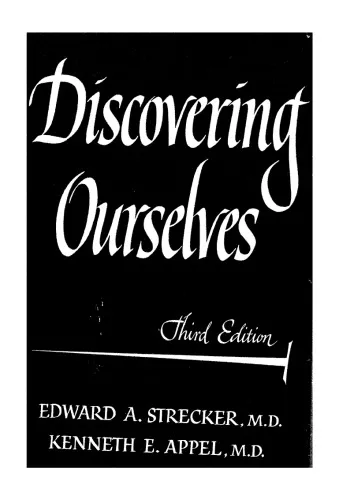Psychological types; or, The psychology of individuation,
4.5
Reviews from our users

You Can Ask your questions from this book's AI after Login
Each download or ask from book AI costs 2 points. To earn more free points, please visit the Points Guide Page and complete some valuable actions.Related Refrences:
Introduction to 'Psychological Types; or, The Psychology of Individuation'
Welcome to the intricate and transformative world of 'Psychological Types; or, The Psychology of Individuation,' a seminal work that ventures deep into the diversity of human personality, written by visionary thinker Carl Gustav Jung in collaboration with Helton Godwin Baynes.
Detailed Summary of the Book
This monumental book delves into the complexities of human psychology by exploring various psychological types that influence behavior, thought processes, and personal development. The book introduces the concept of introversion and extraversion, familiarizing readers with these dual facets of human nature. Furthermore, it expands on the psychological functions of thinking, feeling, sensation, and intuition, offering a comprehensive framework to understand individual differences and cognitive processes.
Jung carefully elaborates on these psychological types by intertwining them with cultural, historical, and literary examples, thus enriching the reader's understanding of his multidimensional approach. Through this synthesis of psychology and culture, Jung sets the stage for exploring the idea of individuation, highlighting the journey towards self-realization and the integration of diverse psychological aspects into a cohesive self.
Key Takeaways
- The duality of human personality is encapsulated by introversion and extraversion, with each person possessing a tendency towards one, intertwined with both conscious and unconscious influence.
- Individuation is a crucial theme, representing the developmental process through which individuals integrate differing aspects of their psyche, achieving a balanced and fully-realized self.
- Four primary psychological functions—thinking, feeling, sensation, and intuition—serve as the foundation for understanding the distinct ways in which individuals perceive and interact with their world.
Famous Quotes from the Book
"Everything that irritates us about others can lead us to an understanding of ourselves."
"The shoe that fits one person pinches another; there is no recipe for living that suits all cases."
"Knowing your own darkness is the best method for dealing with the darknesses of other people."
Why This Book Matters
'Psychological Types; or, The Psychology of Individuation' remains a fundamental text in the field of analytical psychology. It is crucial in today's world where understanding human differences is vital to fostering empathy, cooperation, and personal growth. Jung's typology offers valuable insights, not only for psychologists and scholars but for anyone aiming to understand interpersonal relationships and the subtleties of personality.
The exploration of individuation and personality types becomes even more salient in a globalized and multicultural society, providing a roadmap for personal and collective evolution. Jung’s work continues to influence contemporary psychology, counseling, leadership development, and even popular personality assessments, attesting to its enduring relevance and impact.
Free Direct Download
You Can Download this book after Login
Accessing books through legal platforms and public libraries not only supports the rights of authors and publishers but also contributes to the sustainability of reading culture. Before downloading, please take a moment to consider these options.
Find this book on other platforms:
WorldCat helps you find books in libraries worldwide.
See ratings, reviews, and discussions on Goodreads.
Find and buy rare or used books on AbeBooks.
1366
بازدید4.5
امتیاز0
نظر98%
رضایتReviews:
4.5
Based on 0 users review
Questions & Answers
Ask questions about this book or help others by answering
No questions yet. Be the first to ask!
